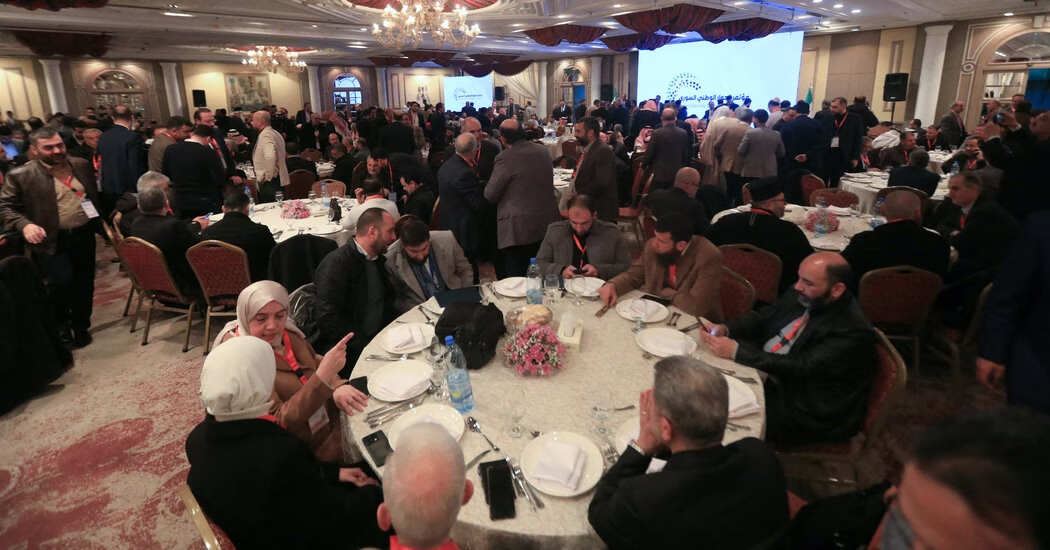Syria’s interim government is uniting individuals from the nation’s numerous religions and sects for a two-day national dialogue that commenced on Monday.
What is the national dialogue?
Ahmed al-Shara, the nation’s interim leader, whose rebel coalition seized control of Syria in early December, pledged to host a national dialogue to discuss the establishment of a representative government.
His administration set a March 1 deadline to initiate the process. Invitations for the event were sent out on February 23 to hundreds of participants, including community leaders, academics, and religious figures, merely a day before the conference was scheduled to start.
Also invited were journalists, businesspersons, activists, former detainees of the Assad regime, and the families of those who lost their lives or were injured in Syria’s brutal, 13-year Civil War.
What about the Kurds?
Mr. al-Shara has emphasized the need to unite Syria’s many diverse populations to rebuild the nation. Syria, primarily a Sunni Muslim country, includes several religious and ethnic minorities, such as Alawites, Druze, Christians, and Kurds.
However, unity efforts have already encountered obstacles.
While some Kurds, who make up about 10 percent of Syria’s population, were invited to the dialogue, the Kurdish-led Syrian Democratic Forces (SDF), a U.S.-backed militia controlling much of Syria’s northeast, was not. The interim government has insisted that the SDF disarm and join a unified national military force as a prerequisite for participating in the dialogue.
The organizing committee has stated that the SDF does not represent all Syrian Kurds.
Turkey, a close ally of the rebel group, has long sought to diminish the SDF’s influence, claiming the militia is connected to Kurdish separatist insurgents within Turkey.
What will come out of the dialogue?
Many Syrians are doubtful about the potential outcomes of a national dialogue, particularly in a country deeply divided where sectarian tensions are leading to revenge killings.
Syrians are also cautious about the promises of inclusiveness from a government led by Hayat Tahrir al-Sham, an Islamist group that has appointed its loyalists to governmental positions. The group has yet to integrate other rebel factions that assisted in ousting Mr. Assad into the government.
The dialogue’s organizers have stated that there is no direct connection between the new Syrian government’s formation and the dialogue conference, though they are occurring simultaneously.
Conference attendees will provide recommendations for the new government, constitution, and laws. However, these recommendations appear to be non-binding.
“The National Dialogue’s recommendations will not be mere suggestions or formalities but will be the basis for the provisional constitutional declaration, economic identity, and institutional reform plan,” said Hassan al-Dughaim, the committee’s spokesperson.
Source: https://www.nytimes.com/2025/02/25/world/middleeast/syria-national-dialogue-kurds.html





